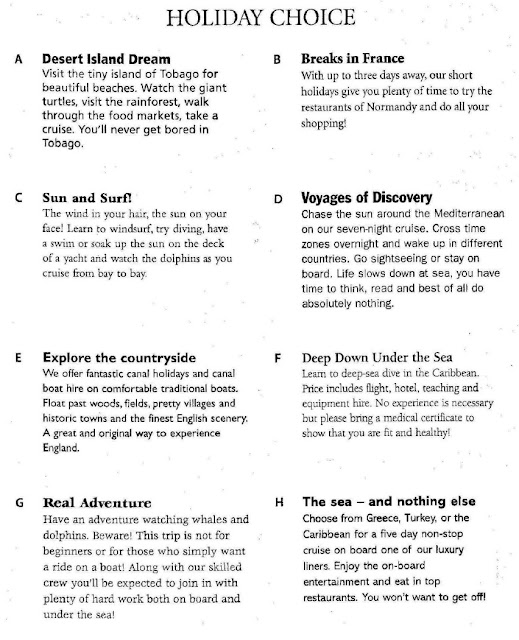http://www.progressiveboink.com/2012/4/21/2912173/calvinhobbes
Read and comment the comic strip with your classmate.
In this session, you've chosen to talk about why you are here.
In your text, include:
- Other options you considered before entering Uni
- How, when and why you decided you would study this programme
- What you are able to do with what you've learned and what you expect to be able to do when you get your degree
- Any other information you consider to be relevant.
Tips: Always do some quick pre-writing, even if it's just a brief brainstorming, mind or spider map, listing or freewriting.
Use connectors between paragraphs to ensure cohesion.
Use a variety of lexical choices to show you're able to share your ideas in detail.
Word count : 260 words
Sample
Before studying in Filosofía & Humanidades (henceforth F&H) I was part of the Anthropology pregraduate programme in Ciencias Sociales Faculty for one semester. I wasn't really sure what to do when I left school, so I took a year off to decide and then I ended up in the Anthropology programme. I didn't really feel at ease there, the discipline felt too distant for me and eventually I realised I had to drop out. I took the rest of the year to prepare my self to take the Chilean version of the Scholastic Aptitude Test (SAT), and then I entered F&H. The main reason why I chose my study programme was because I liked the idea of learning about language and I've always enjoyed reading. In addition, English had always been a motivating area to explore and that I learned with ease.
After finishing the pregraduate programme I felt it was necessary for me to learn more about several aspects of my field, so I decided to do the MA. It took me longer than I had expected because I started working at the same time as I was studying, so at the beginnig it was a very difficult thing to manage. Eventually I was able to finish my thesis project and I graduated in 2011. As a result, I feel I have been able to gain insight on different phenomena related to human sciences, such as intended meaning in language, discourse construction, foreign language acquisition, literary English expressions and plenty of other related areas.
I've worked in the educational field for almost 10 year now, always at College or University Level. I think I've never stopped learning, I'm in a constant search for knowledge and although I don't have much time (I'm currently woking in 4 different places in many different areas, such as commnicative English courses, Applied Linguistics, Applied Phonetics, Literature in English, Writing courses, supervising thesis projects...) I've never stopped being curious and aware that there's always something new to be learned.
For the future I'd really like to be able to have some time to do research and start publishing some of the research projects I've developed in these years. Hope I'll be able to do this next year.
(Word Count: 373)









